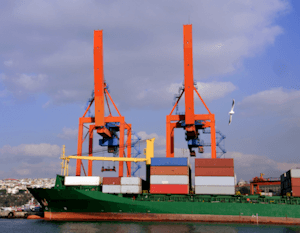Customs Bonds
 Customs bonds, also known as Surety Bonds, are required by the US Customs and Border Protection for all formal entries entered into the United States and are a way for the CBP and all Government agencies to protect themselves in the event that liquidated damages are assessed against an importer and so they can collect on money owed if not paid by the importer.
Customs bonds, also known as Surety Bonds, are required by the US Customs and Border Protection for all formal entries entered into the United States and are a way for the CBP and all Government agencies to protect themselves in the event that liquidated damages are assessed against an importer and so they can collect on money owed if not paid by the importer.
There are three types of Customs Bonds:
- Single Transaction – These bonds are to be used to import a single shipment at a single port. This type of bond is typically used for importers that import only a single shipment in a year.
- Continuous Bond – These bonds are used for importers that import on a regular basis. The most common bond size for a continuous bond is $50,000.
- ISF Bond – If you are bringing in freight by ocean, and ISF (Importer Security Filing) is required. If you do not have a Continuous Bond, an ISF bond will have to be written separately from your Single Bond.
Flegenheimer International, in conjunction with our Surety partners, can write all of these bonds on the importers behalf. In addition, if you are bringing in merchandise subject to ADD/CVD, you will have to provide collateral for the entire amount of your bond. This is provided by way of Irrevocable Letter of Credit. We will walk you through the procedure to do this and put you in touch with a Surety company to help you with the Irrevocable Letter of Credit.
Because it is nearly impossible to import without it, the Customs bond is a critical instrument in the importers business and its placement deserves careful consideration. In our opinion we believe that in most cases it is in the importers best interest to acquire their Customs import bond through a licensed Customs Broker and not through an independent outside surety agent – regardless of price.
It is important that these bonds be written and monitored properly because if not, your shipment will not pass through the CBP entry process timely. In the last 30 years, we have NEVER had a shipment rejected by Customs based on a Customs Bond being mis-filed.
Warning about Customs Bond Solicitation Direct to Importers
This is an open letter of concern about customs bonds and the direct solicitation of bonds directly to importers coming from independent insurance agents.
Because it is nearly impossible to import without it, the Customs bond is a critical instrument in the importers business and its placement deserves careful consideration. In our opinion we believe that in most cases it is in the importers best interest to acquire their Customs import bond through a licensed Customs Broker and not through an independent outside surety agent – regardless of price.
Here are three reasons why we believe what we do:
- Customs Brokers Help Monitor Bond Sufficiency as Required by Regulations
Customs Brokers use automation provided to them by their surety that alert them when bonds are at or nearing insufficiency. Keeping ahead of bond sufficiency preempts demands from CBP and the potential for entry holds. - Customs Brokers help Avert CBP Action That Result From a Bad Address
Because of the broker-importer relationship, brokers are made aware of an importers change of address early on and can promptly file the necessary Address Change Bond Rider. Bad bond addresses can mean financial disaster and entry holds for importers who fail to receive and respond to CBP requests for information or who find themselves time barred. - Stability, Surety Solvency and Adequate Treasury Limit
Financial solvency and treasury limits are of growing importance to importers as more sureties face insolvency and as CBP demand for larger bonds increase. The financial rating of your surety is “A” Excellent and their Treasury limit is $60 million.
In addition to the above, as bond filers, customs brokers have access to back-up sureties when needed and contract with providers who supply them with vital importer entry liquidation and claims data. Please feel free to call me directly to discuss in further detail.
Contact us for help with your customs bond needs.
